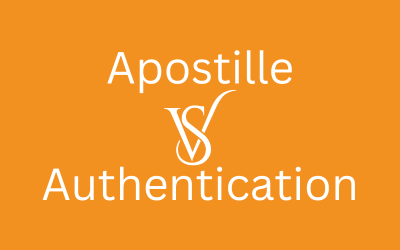The Limited Liability Company structure is a popular choice among serial entrepreneurs because it offers the benefits of personal liability protection for the business owner, tax flexibility, and minimal compliance requirements. As an eager and enterprising entrepreneur, you may set your sights on multiple business ventures and wonder if one person can own multiple LLCs.
Fortunately, no federal or state limits exist on the number of LLCs someone can own. However, aspiring business owners should know that other factors could prevent them from having ownership interest in multiple LLCs.
Also, structuring multiple LLCs requires some strategic thought. Therefore, it’s immensely helpful to discuss the legal, tax, and compliance ramifications with legal and accounting professionals.
Possible Restrictions on Owning Multiple LLCs
While no laws exist to prohibit owning multiple LLCs, an LLC Operating Agreement might not allow it. So, if a person has a membership interest in an existing LLC, it’s important to read that LLC’s operating agreement and determine if any provisions restrict its members from owning multiple companies.
LLC members are bound to fiduciary duties to ensure they act in good faith to advance the interests of the company rather than their self-interests. For example, an operating agreement might prohibit the LLC’s members from engaging in activities that compete with the company. For instance, it might prevent a member from starting a new LLC or acquiring membership interest in another existing LLC if it provides similar services or products.
Similarly, an existing LLC’s members might be prohibited from starting or becoming a member of another LLC if business interactions between the two LLCs directly benefit the LLC member. For example, suppose a person is an LLC member of an automotive repair shop and then starts their own independent LLC to sell tires to garages, including the LLC of which they’re already a member. Depending on the terms of the existing LLC’s operating agreement, they might be prohibited from engaging in business between the two companies — or possibly not allowed to start the new LLC in that line of business.
How to Structure Multiple LLCs
If you intend to start LLCs on your own, you have various options for structuring multiple businesses. Each has advantages and disadvantages, so consider talking with an attorney and accountant for guidance on which approach will be most beneficial for your present and future goals.
1. Form Individual LLCs for Each Business
By forming an independent LLC for each company, each business is protected from the liabilities of the others. So, if someone sues one LLC, the others’ assets are not at risk. Each LLC is a distinct and separate business entity with no legal or tax connections to the others.
Creating independent LLCs involves filing Articles of Organization for each company, maintaining separate operating agreements, and submitting whatever ongoing compliance filings and fees are required for each LLC.
Each Limited Liability Company must:
- Obtain its own EIN
- Apply for and renew its business licenses and permits
- Maintain its own bank accounts, payroll, and company records
- Submit its annual reports (if required)
From a tax perspective, profits and losses flow through to the LLC members and are reported on their personal income tax returns. If a person owns multiple LLCs, they must prepare a separate Schedule C for each LLC.
2. Form an LLC Holding Company With Individual LLCs Beneath It
Alternatively, entrepreneurs might choose to create a parent LLC and then form individual LLCs beneath that holding company. Usually, a parent LLC will own the assets of the LLCs beneath, but it does not actively participate in their operations.
Business owners planning to sell a business line or create a spin-off company may find this option attractive. It can also work well for entrepreneurs with an established LLC who want to use its funds to start a new business.
This approach offers legal and financial protection advantages, too. The individual LLCs are not subject to the lawsuits and debts of the other LLCs. It also provides personal liability protection for the parent LLC’s members.
Creating a holding LLC and independent LLCs under it involves filing Articles of Organization for each company and having separate LLC operating agreements for each LLC.
As you can imagine, tax reporting and filings become complex in this scenario, so guidance from an accountant or tax advisor is highly recommended. The legal implications are more involved and less straightforward, too, so an attorney’s expertise is beneficial when structuring LLCs as a parent company and subsidiaries.
3. Form One LLC With DBAs
Some entrepreneurs choose this option to eliminate statutory paperwork, simplify tax filings, and reduce business compliance obligations. They form one LLC for their primary business and then set up DBAs (also known as “doing business as” names and fictitious names) for other lines of business.
For example, suppose Julia owns Julia’s Italian Bistro, LLC and she wants to begin offering catering services. She might opt to file a DBA to conduct her catering activities under the name Julia’s Touch of Tuscany Catering Company.
In this scenario, the catering arm of the business is part of Julia’s Italian Bistro, LLC, rather than its separate business entity. She can market her catering services as Julia’s Touch of Tuscany Catering Company, but it is not its own independent LLC.
Some advantages of having a DBA include:
- Both areas of the business can accept checks made out to their specific names
- There’s only one LLC to maintain compliance for
- Tax filing is relatively simple; the business owner reports income from the LLC and its DBAs through a single tax filing under the main LLC
- The LLC member has personal liability protection from debts and legal actions against the LLC and its DBAs
The potential downside of this option is that Julia’s Italian Bistro, LLC is responsible for all liabilities of the catering line of business. So, if someone were to bring a lawsuit because of something that occurred during a catering engagement, that lawsuit would be against Julia’s Italian Bistro, LLC, and the entire company’s assets would be at risk.
Final Thoughts
Owning multiple LLCs provides the opportunity to expand an entrepreneur’s revenue potential — but it can also make tax and legal matters more complex. Make sure you tap the expertise of trusted professionals like an attorney and accountant to help you make an informed decision about how to structure your businesses and for guidance on how to keep them compliant.
Form Your LLCs With CorpNet’s Help!
Our expert LLC filing services save you time and offer peace of mind as you pursue your entrepreneurial dream.





